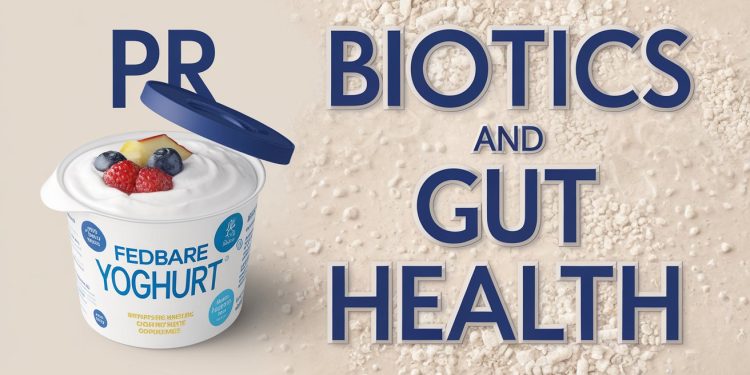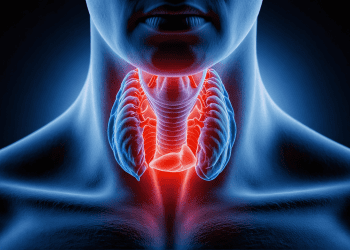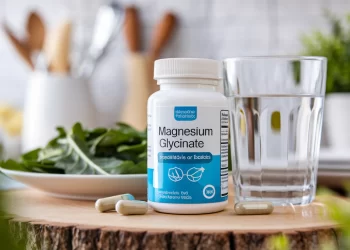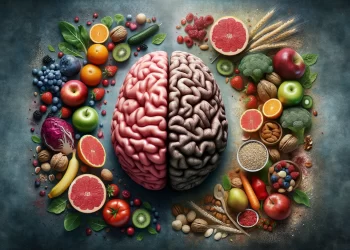Probiotics and gut health go hand in hand, and understanding this connection can be a game changer for your overall well-being. Simply put, probiotics are live microorganisms—often referred to as “good bacteria”—that can provide various health benefits when consumed in the right amounts. The term “probiotic” comes from the Latin word pro, meaning “for,” and the Greek word bios, meaning “life,” which perfectly captures their role in supporting our health.
Our gut microbiome is like a bustling city filled with trillions of microorganisms, all working together to keep us healthy. When this delicate balance is disrupted—a condition known as dysbiosis—it can lead to a range of issues, from digestive disorders like irritable bowel syndrome (IBS) to more systemic problems such as obesity and allergies. This is where probiotics come into play, offering a natural way to restore that balance and promote better gut health.
You might be familiar with popular probiotic strains like Lactobacillus and Bifidobacterium. These friendly bacteria have been part of our diets for centuries, often found in delicious fermented foods like yogurt, kefir, and sauerkraut. By incorporating these probiotics into our daily routines, we can support our gut health and enjoy a variety of benefits.
Mechanisms of Action of Probiotics and Gut Health
Probiotics are more than just friendly bacteria—they’re little superheroes for our gut health! They work in various ways to keep our gut microbiota balanced and support our immune system. Let’s dive into how these amazing microorganisms contribute to probiotics and gut health.
A. How Probiotics Influence Gut Microbiota Balance
Probiotics play a crucial role in maintaining a healthy gut environment by:
- Restoring Microbial Diversity: When our gut microbiome gets out of whack—often due to antibiotics, stress, or a poor diet—probiotics can help bring back the balance. Think of them as the reinforcements that restore harmony in the microbial community.
- Suppressing Pathogen Growth: Probiotics act like bouncers at a club, keeping harmful bacteria from crashing the party. They compete for resources and space, making it harder for bad bacteria to take hold.
- Enhancing Nutrient Absorption: A healthy gut means better absorption of nutrients. Probiotics help create an environment where our bodies can soak up all the good stuff from the food we eat.
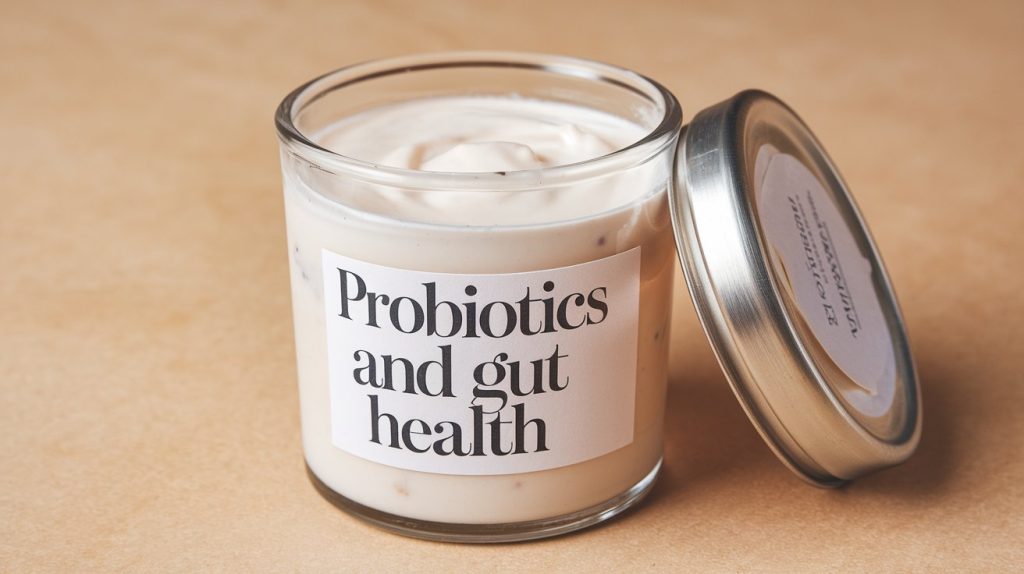
B. Mechanisms of Intestinal Immunomodulation
Probiotics also have a hand in fine-tuning our immune system, which is essential for overall gut health. Here’s how they do it:
1. Induction of Cytokine Production
Probiotics encourage our body to produce cytokines—these are signaling proteins that help regulate immune responses. Here’s what happens:
- Activating Immune Cells: When probiotics stimulate immune cells like dendritic cells and T-cells, they help kickstart our body’s defense mechanisms. It’s like sending out the troops when there’s a threat!
- Balancing Immune Responses: Probiotics promote a healthy balance by encouraging the production of anti-inflammatory cytokines. This is especially important for managing conditions like inflammatory bowel disease (IBD) and allergies, where inflammation can get out of control.
2. Enhancement of Epithelial Cell Function and Tight Junction Integrity
Probiotics also support the cells lining our intestines, which is vital for maintaining good gut health:
- Strengthening Tight Junctions: They help reinforce tight junctions—the connections between epithelial cells that keep our gut barrier intact. A strong barrier prevents “leaky gut,” which can lead to unwanted substances entering the bloodstream.
- Promoting Mucosal Barrier Function: By maintaining a robust mucosal barrier, probiotics protect us from harmful pathogens and toxins that could disrupt our health.
C. Production of Microbial Metabolites (Postbiotics) and Their Health Benefits
One of the coolest things about probiotics is their ability to produce beneficial compounds called postbiotics, which are essential for overall probiotics and gut health. These include:
- Short-chain Fatty Acids (SCFAs): When probiotics ferment dietary fibers, they produce SCFAs like butyrate, which nourish our colon cells, regulate inflammation, and promote overall gut health. It’s like giving your gut a tasty treat that also boosts its function!
- Bacteriocins: These are natural antimicrobial peptides produced by probiotics that help keep harmful bacteria at bay, further contributing to a balanced gut environment.
- Vitamins and Other Bioactive Compounds: Probiotics can even synthesize essential vitamins (like B vitamins) and other beneficial compounds that support our immune system and overall health.
By understanding how probiotics work their magic, we can see why they’re so important for maintaining gut health. Whether through delicious fermented foods or supplements, incorporating probiotics into our daily routine can be a simple yet powerful way to support our well-being!
Health Benefits of Probiotics and Gut Health
When we talk about probiotics and gut health, we’re diving into a world of benefits that can significantly enhance our overall well-being. These tiny, friendly bacteria do wonders for our bodies, and their positive effects reach far beyond just digestion. Let’s explore some of the key health benefits that probiotics bring to the table.
A. Digestive Health
Probiotics are perhaps best known for their incredible impact on digestive health. Here’s how they help keep our guts happy:
- Prevention and Treatment of Diarrhea: If you’ve ever experienced diarrhea, you know how uncomfortable it can be. Probiotics can be a game-changer here! They’re effective in preventing and treating various types of diarrhea, especially antibiotic-associated diarrhea, which happens when antibiotics disrupt the natural balance of bacteria in your gut. By restoring that balance, probiotics help reduce the risk of those pesky bathroom trips.
- Managing Irritable Bowel Syndrome (IBS) and Inflammatory Bowel Disease (IBD): For those dealing with IBS, probiotics can provide relief from symptoms like bloating and discomfort. They can also play a supportive role for individuals with IBD by helping to reduce inflammation and maintain remission, making them a valuable addition to treatment plans.
- Improvement in Nutrient Absorption: Probiotics don’t just help with digestion; they also enhance our gut’s ability to absorb nutrients like proteins and vitamins. By promoting a healthier gut lining, these beneficial bacteria ensure that our bodies get the most out of the food we eat.
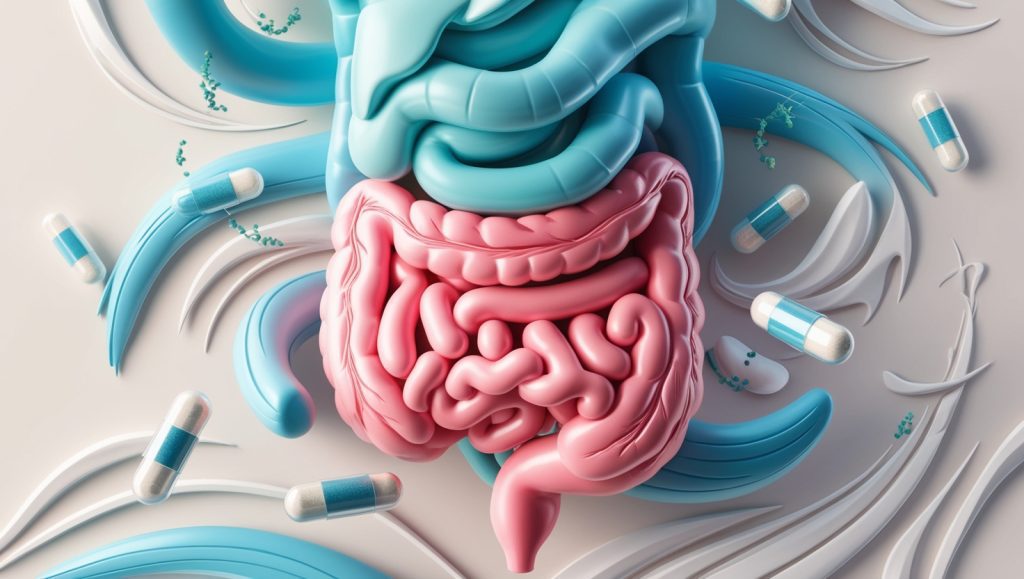
B. Mental Health
Did you know there’s a strong connection between gut health and mental well-being? This relationship is often referred to as the gut-brain axis, and probiotics play an essential role:
- Alleviating Symptoms of Anxiety, Depression, and Stress: Research suggests that probiotics may help reduce symptoms of anxiety and depression. By influencing the production of neurotransmitters like serotonin—often called the “feel-good” hormone—probiotics can contribute to improved mood and reduced stress levels. It’s fascinating how taking care of our gut can positively impact our mental health!
C. Immune Function
Probiotics are also known for their immune-boosting properties:
- Enhancement of Immune Responses: These little warriors help strengthen our immune system by enhancing the activity of immune cells. They promote a balanced immune response, which is crucial for defending against infections.
- Combating Respiratory Infections: Some studies have shown that probiotics may reduce the incidence and duration of respiratory infections, making them a helpful ally during cold and flu season.
D. Cardiovascular Health
Maintaining heart health is another area where probiotics shine:
- Effects on Cholesterol Levels: Certain probiotic strains have been shown to lower LDL (bad) cholesterol levels, which is great news for heart health! By improving lipid profiles, probiotics can help reduce the risk of cardiovascular disease.
- Blood Pressure Management: There’s also evidence suggesting that probiotics may play a role in regulating blood pressure, providing another layer of support for cardiovascular health.
E. Skin Health
Probiotics aren’t just beneficial for our insides; they can also work wonders for our skin:
- Effects on Conditions Like Acne, Eczema, and Rosacea: Probiotics can help manage skin conditions by reducing inflammation and promoting a healthy skin barrier. This can lead to improvements in conditions such as acne, eczema, and rosacea—talk about a win-win!
F. Potential Anti-Aging Effects
The benefits of probiotics extend to cellular health and longevity:
- Role in Cellular Health: Probiotics may support cellular repair processes and enhance overall vitality. By promoting a balanced gut microbiome, they contribute to better nutrient absorption and cellular function.
- Longevity Benefits: Some research indicates that maintaining a healthy gut microbiome through probiotics may be linked to longer life expectancy due to their overall health-promoting effects.

Incorporating probiotics into your diet can lead to numerous health benefits that extend beyond just digestive health. From enhancing mental well-being to supporting immune function and cardiovascular health, these friendly microorganisms are essential allies in promoting overall wellness. Whether through delicious fermented foods or supplements, adding probiotics to your routine could be a simple yet powerful step toward better health!
Sources of Probiotics and Considerations for Use
When it comes to incorporating probiotics and gut health into your routine, understanding where to find these beneficial microorganisms is key. Probiotics can be obtained from various sources, including fermented foods and supplements. Let’s explore these options and consider some important safety aspects.
A. Fermented Foods as Natural Sources
Fermented foods are one of the most delicious and natural ways to boost your intake of probiotics. Here are some popular options:
- Yogurt: This creamy staple is packed with live cultures, particularly Lactobacillus species, which can help support digestive health.
- Kefir: A tangy, fermented milk drink, kefir contains a diverse range of probiotics and is known for its probiotic potency.
- Sauerkraut: This fermented cabbage dish is not only rich in probiotics but also high in fiber and vitamins.
- Kimchi: A spicy Korean side dish made from fermented vegetables, kimchi is loaded with beneficial bacteria and can add a flavorful kick to your meals.
- Miso: A traditional Japanese seasoning made from fermented soybeans, miso is often used in soups and sauces, providing a savory source of probiotics.
- Tempeh: Another soy product, tempeh is a fermented food that serves as a great plant-based protein source while also delivering probiotics.
Incorporating these foods into your diet can be a tasty way to enhance your gut health!
B. Probiotic Supplements
If you’re looking for a more concentrated source of probiotics, supplements might be the way to go. Here’s what to consider:
- Types of Supplements: Probiotic supplements come in various forms, including capsules, tablets, powders, and gummies. Each type has its own advantages, so choose one that fits your lifestyle.
- Strains Matter: Different probiotic strains offer different benefits. Common strains include Lactobacillus acidophilus, Bifidobacterium bifidum, and Saccharomyces boulardii. Research the strains included in the supplement to ensure they align with your health goals.
- Quality Counts: Not all probiotic supplements are created equal. Look for products that have been tested for potency and purity. Reading labels carefully can help you choose a reputable brand.
Risks and Considerations
While probiotics are generally safe for most people, it’s essential to be aware of potential risks and considerations:
Safety Profile
Probiotics have a long history of safe use in foods and supplements. However, some individuals may experience mild side effects such as:
- Gas and Bloating: These are the most commonly reported side effects when starting probiotics. If you experience discomfort, consider reducing your dosage and gradually increasing it over time.
Special Considerations
Certain populations should exercise caution when using probiotics:
- Immunocompromised Individuals: People with weakened immune systems (due to conditions like HIV/AIDS or those undergoing chemotherapy) should consult a healthcare provider before taking probiotics, as they may be at higher risk for infections.
- Chronic Illnesses: Individuals with chronic illnesses or those taking immunosuppressive medications should also seek medical advice regarding probiotic use.
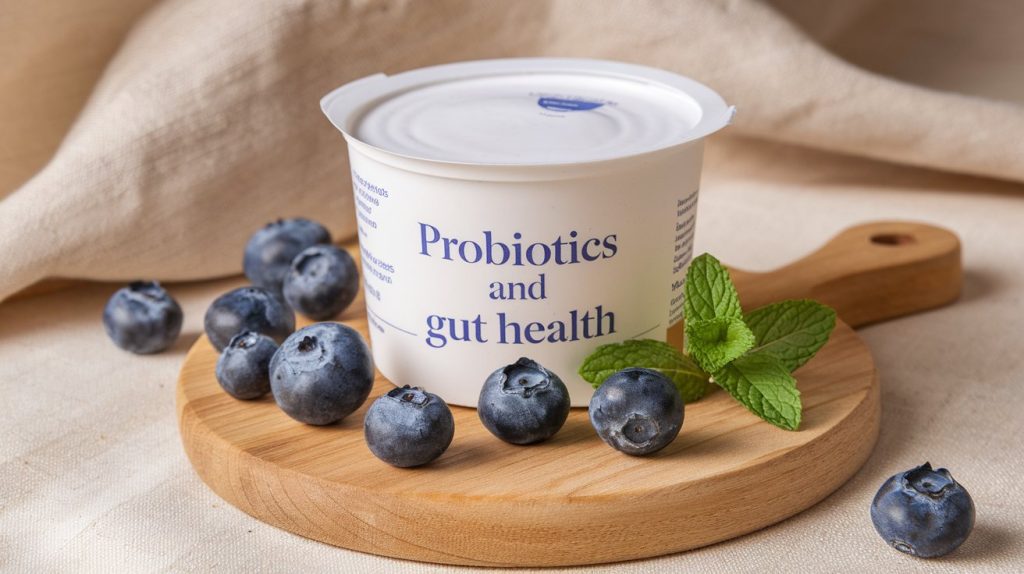
When to Seek Medical Advice
If you experience severe reactions such as abdominal pain or persistent gastrointestinal symptoms after starting probiotics, it’s important to consult a healthcare professional. They can help determine whether probiotics are appropriate for you or if adjustments need to be made.
Incorporating probiotics and gut health into your daily routine can be achieved through delicious fermented foods or targeted supplements.
While generally safe for most individuals, it’s crucial to consider personal health conditions and consult with healthcare professionals when necessary. By making informed choices about probiotics, you can support your gut health effectively!
Current Research and Future Directions in Probiotics and Gut Health
The world of probiotics and gut health is buzzing with exciting research and discoveries! Scientists are diving deep into how these beneficial bacteria can improve our well-being, and there are some fascinating developments on the horizon. Let’s take a look at what’s currently happening in this field and where it might lead us.
Overview of Ongoing Studies
Researchers are hard at work exploring new probiotic strains and their potential health benefits. Here’s what they’re finding:
- Next-Generation Probiotics (NGPs): These innovative strains are being developed to enhance health outcomes. Scientists are investigating how these NGPs can be used to tackle various health conditions, from metabolic issues to gastrointestinal diseases. It’s like discovering new superheroes for our gut!
- Strain-Specific Benefits: Not all probiotics are created equal! Recent studies emphasize the importance of strain specificity. Different strains can have unique effects on our gut health, immune function, and even our mood. For instance, certain Lactobacillus strains might help modulate immune responses in ways that others cannot.
- Fermented Products: There’s also a growing interest in the health benefits of fermented foods and drinks that naturally contain probiotics. Researchers are looking into how these tasty options contribute to gut health and overall wellness, making it easier for us to enjoy our food while boosting our health.
Potential for Personalized Probiotic Therapies
One of the most exciting directions in probiotic research is the potential for personalized probiotic therapies:
- Microbiome Profiling: As we learn more about our individual microbiomes, there’s a push to tailor probiotic treatments based on each person’s unique gut bacteria composition. Imagine having a probiotic plan designed just for you—how cool would that be?
- Targeted Interventions: By understanding how different strains interact with our unique microbiomes, researchers hope to develop targeted probiotic interventions that can improve gut health and prevent specific health issues. This personalized approach could revolutionize how we think about probiotics!
Challenges in Maintaining Probiotic Viability
While the future of probiotics and gut health looks promising, there are still some hurdles to overcome:
- Viability in Food Products: One big challenge is ensuring that probiotics remain alive and effective during food processing and storage. Many probiotic strains are sensitive to heat, moisture, and oxygen, which can diminish their potency by the time they reach us.
- Regulatory Hurdles: The probiotics industry faces strict regulations regarding health claims. Currently, there aren’t standardized health claims associated with many probiotic products due to insufficient evidence from large-scale studies. This makes it tricky for manufacturers who want to market their products effectively.
Additional Resources
Here are some additional resources for learning more about probiotics and gut health:
- The International Scientific Association for Probiotics and Prebiotics (ISAPP) – A non-profit organization dedicated to advancing the science of probiotics, prebiotics and the human microbiome. Their website features educational resources, news, and a blog.
- The Gut Microbiome and Probiotics: Applications for Health – A comprehensive review article published in the journal Nutrients that explores the role of the gut microbiome and probiotics in health and disease.
- Gut Microbiome and Probiotics: A Primer for Clinicians – An article from American Family Physician that provides an overview of the gut microbiome and the clinical applications of probiotics for primary care physicians.
- The Human Microbiome Project – A research initiative funded by the National Institutes of Health to study the human microbiome. The website provides access to data, tools and publications related to the project.
- Probiotics: What You Need To Know – An overview of probiotics from the National Center for Complementary and Integrative Health, part of the U.S. Department of Health & Human Services.
- Gut Microbiome and Probiotics in Autism Spectrum Disorder – A review article exploring the potential role of the gut microbiome and probiotics in autism spectrum disorder.
- Probiotics for Digestive Health – An article from the Academy of Nutrition and Dietetics on the use of probiotics for digestive health.
These resources provide a mix of scientific information, educational materials, and practical guidance related to probiotics and gut health from reputable organizations and journals.
Final Thoughts
To wrap it up, the importance of probiotics and gut health is clearer than ever! These friendly microorganisms play a vital role in promoting digestive health, boosting our immune system, and even supporting our mental well-being. As research continues to unfold, we’re gaining valuable insights into how specific probiotic strains can impact our lives.
However, we still have much to learn about the full range of probiotics’ health benefits. Ongoing studies exploring new strains, personalized therapies based on individual microbiome profiles, and efforts to tackle challenges related to viability and regulation hold great promise for the future.
Incorporating probiotics into our daily routines—whether through delicious fermented foods or targeted supplements—can be a simple yet powerful step toward better health. As we continue to explore this fascinating field, we can look forward to unlocking even more potential benefits that probiotics have to offer! So why not start today? Your gut will thank you!



